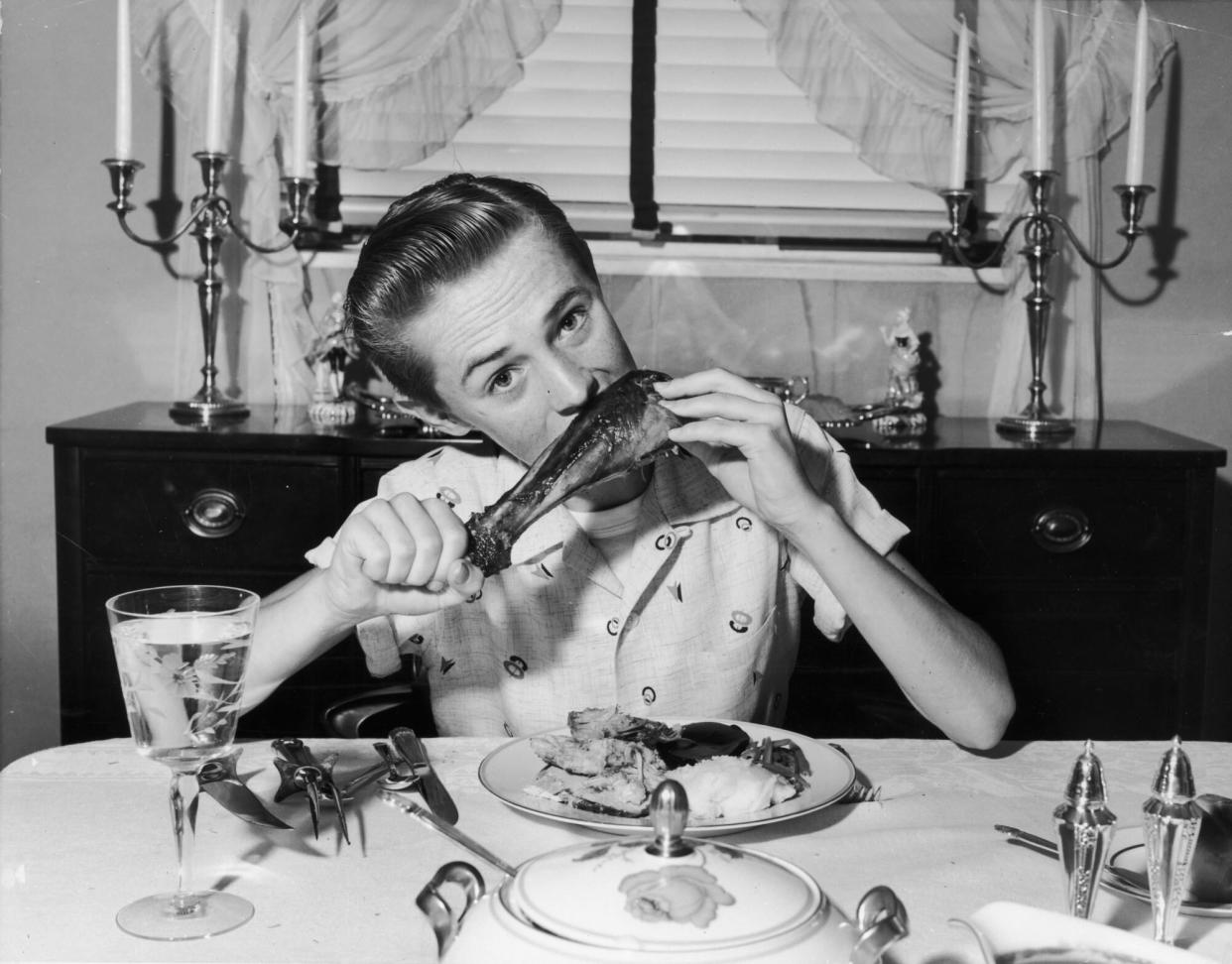Why Is It Rude to Eat with Your Elbows on the Table?

Lambert/Getty Images
"Elbows off the table!"
It's still ringing in our ears even after decades out from under mama's roof. Not that we'd expect her favorite mealtime reminder (after chew with your mouth closed, of course) to ever leave us.
Keeping your elbows off the table during meals is one of the most arbitrary etiquette rules out there, and yet, it's one of the earliest taught to little eaters. So why, of all the offensive acts one could commit while dining, is it so forcefully policed? And is it actually rude?
Like most etiquette rules, mealtime elbow placement is a holdover from a bygone era.
For earlier civilizations, it was a way to prevent outbreaks of violence at the table. "Table manners prevented us from leaving our space and starting a fight. It was important that people saw you as considerate or trying hard," Margaret Visser, author of The Rituals of Dinner: The Origins, Evolution, Eccentricities, and Meaning of Table Manners, explained to Reader's Digest.
Think of it this way. Situated on either side of a place setting, the fork and knife already act as an imaginary boundary for each person's space at the table. In the olden days, back when social norms were the only thing keeping people in line, crossing that invisible border could be interpreted as a disregard for order. People like that were dangerous and capable of anything.
"People got scared when you started having bad manners," Visser continued. "They realized the taboo was not functioning and you didn't know what this person was going to do next."
WATCH: Are "Yes, Ma'am" and "No, Sir" Things of the Past?
Today, while it's unlikely that your elbows will be interpreted as a threat, it is inconsiderate to put them on the table. Whether you realize it or not, your elbows are likely encroaching on those around you. But in a causal, familiar setting, it's totally fine to do it every once in a while. In fact, etiquette queen Emily Post is known for happily eating with her elbows on the table from time to time.
"It really makes no difference," she famously said.